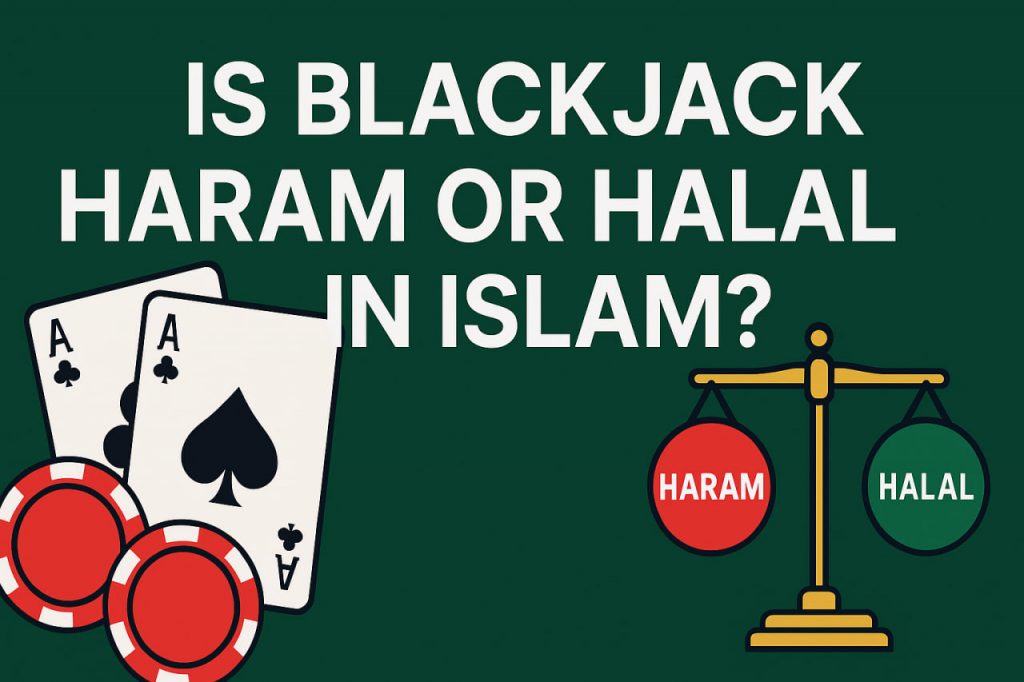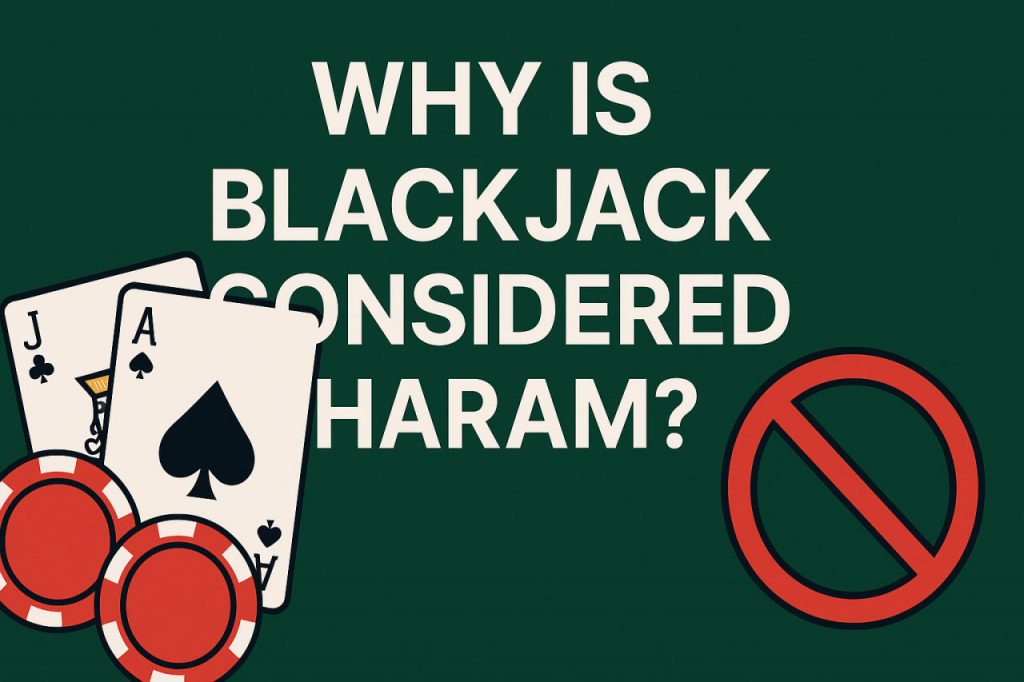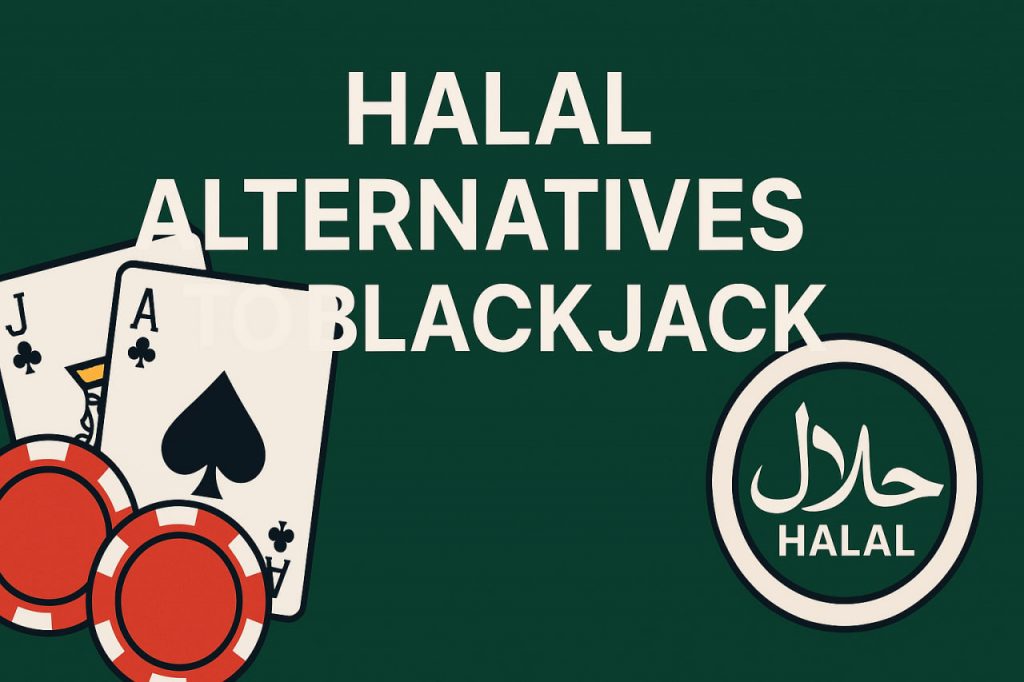Is Blackjack Haram or Halal in Islam?

In today’s rapidly evolving digital era, the lines between entertainment, technology, and morality have become increasingly blurred. Online gaming, including virtual casinos and card games, has exploded in popularity, with millions of users worldwide. Among the most commonly played and widely recognized casino games is Blackjack, also known as “21.” It’s a fast-paced card game involving a mix of chance, skill, and strategy. However, for devout Muslims who seek to align their lifestyle with the teachings of Islam, a critical ethical question arises: Is blackjack halal or haram in Islam?
This article delves deep into the nature of Blackjack, explores Islamic teachings regarding gambling, and ultimately aims to offer a clear answer to this religious query. We’ll explore theological references, historical context, social implications, and healthier alternatives that align with Islamic values.
Understanding Blackjack in Depth
Blackjack is a card game where players aim to achieve a hand total of 21 or as close as possible without exceeding it. The objective is to beat the dealer’s hand without “busting” over 21. Blackjack is played both in physical casinos and online, often with real money on the line. Many versions now exist in digital formats, including mobile apps, virtual reality platforms, and live dealer settings.
Key Components of Blackjack:
- Players vs. Dealer: The competition is not between players but against the house.
- Use of Strategy: Players make decisions based on probabilities (hit, stand, double down).
- Monetary Stakes: Most games involve placing bets to participate.
- Luck Factor: Despite strategy, the outcome heavily depends on which cards are drawn.
- Casino Edge: The house always has a statistical advantage.
- Psychological Influence: The game’s pace and betting incentives can create compulsion.
Even though Blackjack seems to require strategic thinking, it remains, at its core, a form of gambling. The presence of betting and monetary loss or gain shifts it away from mere entertainment to an activity rooted in financial speculation and psychological manipulation.
Historical Context of Gambling in Islam
Gambling existed in pre-Islamic Arabia and was often tied to tribal rivalry and personal gain. With the revelation of the Quran, gambling was incrementally discouraged and then fully prohibited. This historical transition highlights Islam’s focus on protecting moral, financial, and social integrity within the community.
What Does Islam Say About Gambling?
To assess whether Blackjack is halal or haram, one must refer to Islamic scripture: the Quran and the Hadiths of the Prophet Muhammad (peace be upon him). Islamic teachings clearly delineate permissible and forbidden behaviors, especially when it comes to transactions and personal conduct.
Quranic Evidence
“O you who have believed, indeed, intoxicants, gambling, [sacrificing on] stone alters [to other than Allah], and divining arrows are but defilement from the work of Satan, so avoid it that you may be successful.”
(Surah Al-Ma’idah, 5:90)
This verse equates gambling with other serious transgressions, underscoring the deep ethical issues involved.
“Satan only wants to cause between you animosity and hatred through intoxicants and gambling and to avert you from the remembrance of Allah and from prayer. So will you not desist?”
(Surah Al-Ma’idah, 5:91)
Gambling disrupts personal discipline and societal peace. It fosters envy, resentment, and selfish behavior, all of which corrode Islamic values.
Hadith Evidence
- The Prophet Muhammad (PBUH) said: “Whoever says to his companion ‘Come, let us gamble’ must give charity.” (Sahih Muslim)
- He also condemned financial gains acquired without effort, and gambling fits this definition precisely.
Gambling, or Maisir, is classified as a major sin (kabira) and is strictly prohibited. Islam emphasizes lawful (halal) earnings and transparent transactions, discouraging deception and financial exploitation.
Try Our Halal-Approved Blackjack Alternative
Classical blackjack involves real-money gambling, hidden risk, and chance-based profit, which makes it haram in Islam. Our team has reviewed several blackjack-style games and selected a halal-friendly version that removes the betting and gambling elements, while still offering a strategic card-based experience.
- ✔ Reviewed and Shariah-checked blackjack alternative
- ✔ No betting, no money wagering, no chance-based profit
- ✔ A safe, halal-friendly way to enjoy blackjack-style gameplay
Disclaimer: This halal-friendly version is based on our team’s Shariah analysis. For individual rulings, please consult a qualified Islamic scholar.
Why Is Blackjack Considered Haram?

Despite its strategic elements, Islamic scholars classify Blackjack as haram due to the following core issues:
1. Involves Gambling (Maisir)
Blackjack requires players to stake money with the hope of winning more, falling squarely under the Islamic prohibition of gambling. Islam forbids monetary activities based on chance and unjust enrichment.
2. Encourages Greed and Risk-Taking
The game cultivates a mindset of impatience and greed. Islam encourages moderation and self-discipline. Seeking profit through speculation and shortcuts is discouraged.
3. Leads to Addiction
Numerous psychological studies indicate gambling’s addictive nature. Repetitive play, chasing losses, and the thrill of risk-taking become habitual. This undermines personal control, often leading to financial crisis and family strife.
4. Detracts from Worship and Responsibilities
Blackjack can consume hours of time, distracting players from religious duties, community obligations, and self-improvement. The Prophet (PBUH) emphasized the value of time as a gift and a trust.
5. Involves Unjust Gains
In Blackjack, one party gains only by another’s loss, violating the principles of mutual benefit. Islam advocates fairness in all dealings. Profit should come from value creation—not from someone else’s downfall.
6. Promotes an Un-Islamic Lifestyle
Environments associated with Blackjack often include alcohol, vulgar entertainment, and inappropriate attire. Even virtual versions may present inappropriate ads and gamified systems designed to mimic real gambling.
7. Triggers Psychological Harm
Besides addiction, gambling fosters anxiety, obsession, and unrealistic financial expectations. These can lead to depression and family conflicts—conditions Islam seeks to prevent by encouraging mental and emotional balance.
Addressing Common Misconceptions
Modern interpretations often try to justify gambling games under specific conditions. Here are frequently mentioned arguments:
- “It’s just a game; I don’t play with real money.”
- “It improves memory, math, and logic skills.”
- “I only play occasionally, not habitually.”
- “Free apps don’t count—it’s just for fun.”
Islamic Response:
The issue lies not only in the presence of money but in the simulation of gambling behavior. Islam teaches us to avoid environments and habits that resemble sinful acts, as they can weaken moral resistance. Repeated exposure desensitizes the heart to wrong, even if the act is framed as harmless entertainment.
“And do not approach indecent deeds, whether openly or in secret.” (Quran 6:151)
Even if no harm is apparent now, the pathway it opens leads to behavior inconsistent with taqwa (God-consciousness).
Halal Alternatives to Blackjack

Islam encourages Muslims to relax and enjoy themselves in a wholesome way. The Prophet (PBUH) encouraged leisure that enhances mental strength and builds brotherhood. Here are some enjoyable and stimulating halal games:
Strategy-Based Games:
- Chess – Encourages planning, analysis, and concentration.
- Checkers or Go – Sharpen logical reasoning.
- Scrabble – Enhances vocabulary and linguistic skills.
- Dominoes – Encourages strategic foresight.
Educational Puzzles and Games:
- Sudoku – Improves number recognition and logic.
- Crossword Puzzles – Expands general knowledge.
- Math Riddles and Brain Teasers – Enhances problem-solving abilities.
Group Activities:
- Islamic Quiz Games – Learn about the Quran and Hadith in an interactive way.
- Storytelling Challenges – Develop creativity and oral skills.
- Board Game Nights – Strengthen family ties and friendships.
Digital Halal Gaming:
- Apps like Muslim Kids Games or Islamic-themed trivia.
- Educational games focusing on history, logic, or geography.
These activities help maintain an Islamic environment, stimulate intellect, and foster stronger community bonds.
Blackjack – Halal vs. Haram Analysis
| Criteria | Description | Verdict |
|---|---|---|
| Involves gambling (maisir) | Betting money on uncertain outcomes | Haram |
| Requires skill | Some strategy involved but dominated by chance | Neutral |
| Leads to addiction | Creates dependency and compulsive habits | Haram |
| Outcome based on chance | Relies on random card distribution | Haram |
| Simulates gambling | Even free versions mimic haram practices | Haram |
| Encourages greed | Drives desire for fast money | Haram |
| Diverts from ibadah | Consumes valuable spiritual and personal time | Haram |
| Associated with haram environments | Often tied to immoral content, both online and offline | Haram |
| Triggers psychological harm | Leads to stress, anxiety, and social conflict | Haram |
| Undermines Islamic values | Opposes principles of fairness, justice, and lawful earnings | Haram |
Conclusion: Is Blackjack Halal or Haram?
To answer the core question directly: Is blackjack halal? No. Is blackjack haram? Yes.
Islam is unequivocal in its prohibition of gambling. Blackjack, by its design and intent, falls under this category. Regardless of whether money is involved or not, the game replicates gambling behavior, promotes un-Islamic values, and distracts from spiritual and personal growth.
Final Reflections
A righteous life is built on conscious decisions rooted in faith. The temptation to justify modern forms of entertainment must be weighed against the eternal principles of Islam. Avoiding Blackjack is more than abstaining from cards—it’s about preserving one’s moral integrity.
There are many exciting, halal ways to enjoy your time, engage your mind, and build meaningful connections. Choose wisely. Choose what pleases Allah (SWT).
“And whoever fears Allah – He will make for him a way out. And will provide for him from where he does not expect.”
(Surah At-Talaq, 65:2-3)
FAQ
Traditional blackjack is considered haram because it involves wagering money, profiting through chance, and relying on uncertainty. These elements fall under clear prohibitions related to gambling in Islam, such as maysir and gharar.
Classic blackjack is based on betting, risk, and monetary gain influenced by luck. Even though the game includes strategy, the outcome still depends heavily on chance, which makes it impermissible according to Islamic rulings.
Blackjack can only be halal if it removes all real-money betting, gambling mechanics, and profit-based rewards. A purely recreational, non-monetary version that focuses on strategy and entertainment can be considered permissible.
A halal-friendly version does not involve bets, winnings, losses, or financial stakes. It keeps the strategic, card-based gameplay while removing the gambling elements that make the original version haram.
If the game does not involve money, betting, addiction, or harmful behavior, then playing it as entertainment may be acceptable. The intention should not be linked to gambling or seeking profit through chance.
Scholars universally prohibit real-money blackjack, but many agree that non-gambling adaptations fall under permissible entertainment. That is why each version must be checked carefully before being recommended as halal.

User Reviews
I always avoided blackjack because it’s clearly haram, but this site helped me find a halal-friendly version. Finally, I can enjoy a strategy-based card game without compromising my beliefs.
The Shariah review on this website is very detailed and reassuring. I’m glad there’s a blackjack-style option that removes the gambling part completely. Thank you for the clarity!
I never imagined a halal blackjack alternative existed. Your team’s guidance really helps Muslims avoid haram games while still enjoying something fun and safe. Great work!
This site made it easy for me to understand the difference between haram blackjack and the halal version recommended here. Very useful for anyone trying to stay within Islamic rules.